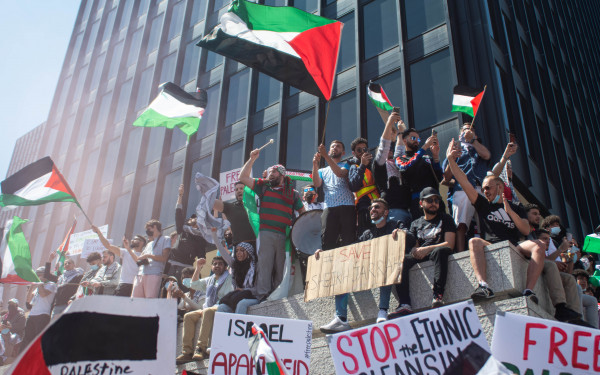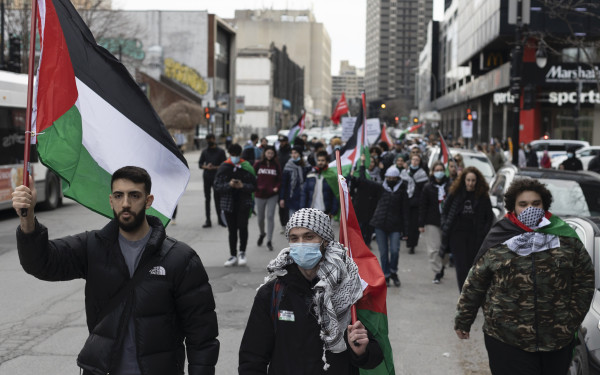An Inspiring Account of Non-violent Resistance in Palestine
“Death, stealing and uprooting the trees are one and the same,” says an old landowner, looking to the horizon where Israel planned to erect its infamous wall in early 2004.
“Death, stealing and uprooting the trees are one and the same,” says an old landowner, looking to the horizon where Israel planned to erect its infamous wall in early 2004.
Budrus, the award-winning 2009 documentary by Brazilian-American Julia Bacha, was featured last week at Cinema du Parc for the seventh edition of the Palestinian Perspectives film series alongside two documentaries by Palestinian-Lebanese filmmaker Nasri Hajjaj and another on activist Rachel Corrie, who was killed in Gaza.
The film centers on the tiny village of Budrus in the West Bank where 1,500 people risked their lives to protect their land over a period of 10 months in 2004, defying bulldozers, tear gas, live ammunition and an imposed curfew to protect the olive trees in the region and fight a “security barrier” that would completely enclose their village.
Its planned route would have cut through farming lands and taken 300 acres and 3,000 life-giving olive trees. It would have, if not for the months of protests that stopped its construction.
Through intense live-action footage of the demonstrations, Budrus chronicles over 50 non-violent marches and blockades involving Palestinian men, women and children, international activists and sympathetic Israelis.
Budrus is a rare story from the Middle East where persistent action succeeds in thwarting the occupation in a relatively small but profound way. At the centre of the film is movement organizer Ayed Morrar, a villager from Budrus and formerly imprisoned Fatah member, and his fearless 15-year-old daughter Iltezam as they attempt to unify factions within Palestine and work in solidarity with Israeli supporters.
Including interviews with the IBP, activists from Israel and South Africa and villagers of all ages, the film gives a balanced account of the dispute, moving beyond borders into complex human relationships.
The documentary also shows how the protests in Budrus have set an example for the rest of the occupied territories and the world. The movement that Morrar started has garnered international support and has since sparked protest throughout villages in the West Bank, including the popular protests of the barrier in Bil’in.
This article originally appeared in Volume 31, Issue 09, published October 12, 2010.



_600_375_90_s_c1.jpg)
_600_375_90_s_c1.jpg)

